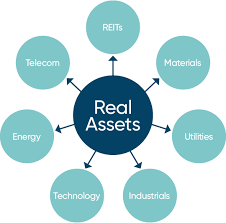The world of finance has been irrevocably changed by the advent of cryptocurrencies. As we move further into 2024, the importance of understanding and strategically approaching cryptocurrency investments has never been greater.
This comprehensive cryptocurrency investment guide aims to equip both novice and experienced investors with the knowledge and tools needed to navigate the often turbulent waters of the crypto market.
Whether you’re looking to dip your toes into the crypto pool or aiming to refine your existing investment strategy, this guide will serve as your compass in the vast ocean of digital assets.
From understanding the current landscape to implementing risk management strategies, we’ll cover everything you need to know to make informed decisions in your cryptocurrency investment journey.
Skale Money Key Takeaways
- Understand the current state of the cryptocurrency market in 2024
- Learn fundamental principles of cryptocurrency investing
- Develop a personalized investment strategy based on your goals and risk tolerance
- Conduct thorough research before investing in any cryptocurrency
- Choose secure and user-friendly exchanges and wallets
- Implement effective risk management techniques
- Stay informed about the latest crypto news and trends
- Navigate tax implications and legal considerations of crypto investing
Table of Contents
Understanding the Cryptocurrency Landscape in 2024
The cryptocurrency ecosystem has evolved significantly since its inception. As of 2024, the market has matured, with clearer regulations and more institutional participation shaping its trajectory.
Key aspects of the 2024 crypto ecosystem:
- Major cryptocurrencies and their market share
- Emerging trends and technologies like DeFi and NFTs
- Regulatory landscape across key markets, including the US, EU, and Asia
Fundamental Principles of Cryptocurrency Investing
Before diving into specific investment strategies, it’s crucial to grasp the foundational concepts that underpin the cryptocurrency market.
Essential principles:
- Understanding blockchain technology and its implications
- Differentiating between coins and tokens
- Importance of market capitalization in assessing a cryptocurrency’s value
- Concept of liquidity and trading volume
Advice: To deepen your understanding of crypto fundamentals, consider resources like “Mastering Bitcoin” by Andreas Antonopoulos or online courses from platforms like Coursera or edX.
Developing Your Cryptocurrency Investment Strategy
A successful cryptocurrency investment guide must emphasize the importance of a personalized strategy that aligns with your financial goals and risk tolerance.
Steps to create a solid strategy:
- Define your investment goals (short-term vs. long-term)
- Assess your risk tolerance honestly
- Implement diversification in your crypto portfolio
- Consider dollar-cost averaging vs. lump sum investing approaches
| Risk Profile | Bitcoin | Ethereum | Large Cap Alts | Small Cap Alts | Stablecoins |
| Conservative | 40% | 30% | 10% | 5% | 15% |
| Moderate | 35% | 25% | 20% | 10% | 10% |
| Aggressive | 30% | 20% | 25% | 20% | 5% |
Conducting Thorough Research Before Investing
In the world of cryptocurrency, knowledge is not just power—it’s essential for survival. Before committing your hard-earned money, conduct comprehensive research on potential investments.
Key areas to research:
- Project whitepapers and development teams
- Use case and problem-solving potential of the cryptocurrency
- Community engagement and support
- Technical analysis and chart patterns for timing entries and exits
Advice: Watch out for red flags such as anonymous teams, unrealistic promises of returns, or a lack of clear use case for the token.
Selecting the Right Cryptocurrency Exchanges and Wallets
The choice of where to buy, sell, and store your cryptocurrencies is a critical decision that can significantly impact your investment success and security.
Factors to consider when choosing:
- Security features and history of the platform
- Range of supported cryptocurrencies
- Fee structures and available trading pairs
- User interface and overall experience
- Regulatory compliance and geographical restrictions
| Exchange | Security Rating | Supported Coins | Trading Fees | Unique Feature |
| Exchange A | 9/10 | 100+ | 0.1% – 0.5% | Advanced trading tools |
| Exchange B | 8/10 | 50+ | 0.2% – 0.4% | Fiat on-ramps |
| Exchange C | 9/10 | 200+ | 0% – 0.2% | Insurance fund |
Implementing Risk Management Strategies
The volatile nature of the cryptocurrency market makes risk management an indispensable part of any cryptocurrency investment guide.
Essential risk management techniques:
- Set and adhere to stop-loss orders
- Use hardware wallets for long-term storage of significant holdings
- Avoid over-leveraging your positions
- Regularly rebalance your portfolio to maintain your desired asset allocation
Advice: Create a personal risk management checklist and review it before making any significant investment decisions.
Staying Informed: Keeping Up with Crypto News and Trends
The cryptocurrency market moves at breakneck speed, with new developments occurring daily. Staying informed is crucial for making timely investment decisions.
Ways to stay updated:
- Follow reliable crypto news sources and podcasts
- Engage with social media accounts of respected industry leaders
- Participate in cryptocurrency forums and communities
- Attend blockchain and crypto conferences, either virtually or in person
| News Source | Focus Area | Update Frequency |
| CoinDesk | General crypto news | Daily |
| The Block | In-depth analysis | Weekly |
| Decrypt | DeFi and NFTs | Daily |
Tax Implications and Legal Considerations
Navigating the tax and legal landscape of cryptocurrency investments can be complex, but it’s an essential part of responsible investing.
Key tax and legal aspects:
- Reporting cryptocurrency gains and losses on your tax returns
- Understanding international tax implications for global traders
- Ensuring compliance with regulations in your jurisdiction
- Maintaining detailed records of all crypto transactions
Advice: Consider consulting with a tax professional who specializes in cryptocurrency to ensure full compliance and optimize your tax strategy.
Future Outlook: Emerging Trends in Cryptocurrency Investing
As we look beyond 2024, several trends are likely to shape the future of cryptocurrency investing.
Potential future developments:
- Increased adoption of Central Bank Digital Currencies (CBDCs)
- Further evolution and mainstream adoption of Decentralized Finance (DeFi)
- Integration of artificial intelligence with blockchain technology
- Growing focus on environmental sustainability in crypto mining and transactions
| Sector | Potential Impact | Timeline |
| DeFi | High | 1-3 years |
| CBDCs | Medium | 3-5 years |
| AI + Blockchain | High | 2-4 years |
Conclusion
As we’ve explored in this comprehensive cryptocurrency investment guide, navigating the crypto waters requires a blend of knowledge, strategy, and caution. The cryptocurrency market of 2024 offers unprecedented opportunities, but it also comes with its share of risks and challenges.
By understanding the current landscape, adhering to fundamental investment principles, conducting thorough research, and implementing robust risk management strategies, you can position yourself for success in the world of cryptocurrency investing.
Remember that the key to long-term success lies in continuous learning and adapting to the ever-changing crypto ecosystem.
As you embark on or continue your cryptocurrency investment journey, stay informed, remain cautious, and never invest more than you can afford to lose. The future of finance is digital, and with the right approach, you can be a part of this exciting revolution.
FAQ Section
What is the minimum amount needed to start investing in cryptocurrencies?
There’s no set minimum. Many exchanges allow you to buy fractions of coins, so you can start with as little as $10.
How often should I rebalance my crypto portfolio?
It depends on your strategy, but quarterly rebalancing is common. Some investors also rebalance when their allocation shifts significantly (e.g., >5% from target).
Are cryptocurrencies legal in all countries?
No, regulations vary widely. Always check the legal status in your country before investing.
What’s the difference between hot and cold wallets?
Hot wallets are connected to the internet (more convenient but less secure), while cold wallets are offline storage devices (more secure but less convenient).
How can I protect myself from crypto scams?
Be wary of promises of guaranteed returns, do thorough research, use reputable exchanges, and never share your private keys.
Author: Cosmas Mwirigi
Cosmas Mwirigi is an established freelance writer with over five years of experience and the founder of Skalemoney.com. Cosmas Mwirigi has been published on PV-Magazine, Slidebean, Bridge Global, Casinos.com, Gambling.com, and Reverbico among many other websites.
Cosmas Mwirigi is an expert writer in iGaming, B2B, SaaS, Finance, digital marketing and Solar renewable energy. To contact him for his services, connect with him on his LinkedIn
![]()




